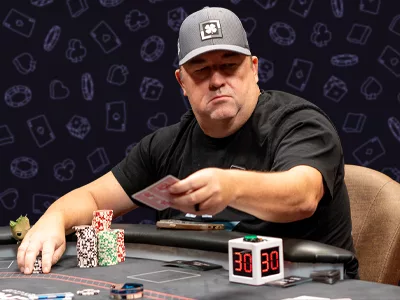Adapting to Short Deck post-flop play requires an understanding of equity shifts, aggressive betting and careful hand selection Short Deck Poker, also known as Six Plus Hold’em, has gained popularity due to its fast-paced action and strategic complexity. With fewer cards in the deck, hand strengths shift, and post-flop decisions become even more critical. Mastering
Category: How to
Reading Tells and Behavioral Patterns in Heads-up Texas Hold’em
By staying observant and flexible, you can gain the upper hand in heads-up Texas Hold’em battles Success in Heads-Up Texas Hold’em often comes down to reading an opponent’s tells and recognizing behavioral patterns. With only two players at the table, every action becomes more meaningful, and small details can reveal valuable information about an opponent’s
Whether or Not To Go All-in With Small Pocket Pairs in Texas Hold’em
Evaluating position, stack size, and opponents’ tendencies is crucial before making the move Deciding whether to go all-in with small pocket pairs in Texas Hold’em depends on several factors, including position, stack size, and opponent tendencies. While pocket pairs can be strong preflop, they are often vulnerable postflop, making the decision highly situational. Small pocket
Utilizing Weak Tight Players as a Resource in PLO Tournaments
By varying aggression and paying attention to weak players’ tendencies, they can become a reliable source of chips In Pot-Limit Omaha (PLO) tournaments, identifying and exploiting weak tight players can be a valuable strategy. These opponents tend to play conservatively, avoiding big confrontations unless they hold strong hands. While this cautious style can keep them
What It Means to Muck in Texas Hold’em
Knowing when to muck can impact how opponents perceive your strategy In Texas Hold’em, the term “muck” refers to both the act of folding a hand and the pile of discarded cards during a game. Mucking typically occurs in two key situations: when a player folds their hand during a betting round or when they
Understanding the Value of Suited vs. Offsuit Hands in Short Deck Hold’em
Understanding how hand values change in Short Deck is key to making better decisions Short Deck Hold’em, also known as Six-Plus Hold’em, is a fast-paced variation of traditional Texas Hold’em that removes the twos, threes, fours, and fives from the deck. With only 36 cards in play, hand values shift significantly, making certain hands stronger
Understanding Implied Odds for Small Pocket Pairs in Texas Hold ’em
Careful evaluation of potential future winnings is necessary to turn these hands into winning plays Implied odds play a crucial role in Texas Hold ’em, especially when deciding whether to call a preflop raise with small pocket pairs. Unlike direct pot odds, which focus only on the immediate risk versus reward, implied odds consider potential
Starting Hand Considerations in 7-Card Stud: Door Cards and Live Cards
Unlike Texas Hold’em, where all players share community cards, 7-Card Stud is a game of individual board awareness and keen observation. The key to success in this format starts with proper hand selection—specifically evaluating door cards (your first upcard) and live cards (cards that haven’t been folded or revealed in other players’ hands). While post-flop
Value Betting vs. Bluffing Strategies in Poker
In poker, every bet must have a specific purpose. Whether attempting to extract maximum value from a good hand or making an opponent fold a better hand, the skill of balancing value betting and bluffing distinguishes excellent players from the rest. Understanding when to play for value and when to bluff is important, and learning
How to Leverage Position in Heads-up Texas Hold’em Matches
By applying pressure and adjusting to opponent’s tendencies, you can maximize your edge in heads-up matches Position is one of the most important factors in heads-up Texas Hold’em. Since there are only two players, every hand consists of one player acting first and the other acting last. Understanding how to take advantage of position can
Adjusting Your Aggression Based on Opponents’ Styles in PLO
Recognizing different styles and responding accordingly can create profitable opportunities at the table Pot-Limit Omaha (PLO) requires a dynamic approach, especially when it comes to adjusting aggression based on opponents’ playing styles. Unlike No-Limit Hold’em, where aggressive betting can force folds more easily, PLO players often see more flops due to the greater number of
Difference between tournaments and cash games
From the moment you step into Texas Hold’em, you will realize that there are two primary forms that rule the poker world: cash games and tournaments. While both share the same game as their foundation, the environment, strategies, and thought processes are entirely different. In order to be a good all-around player who can perform













